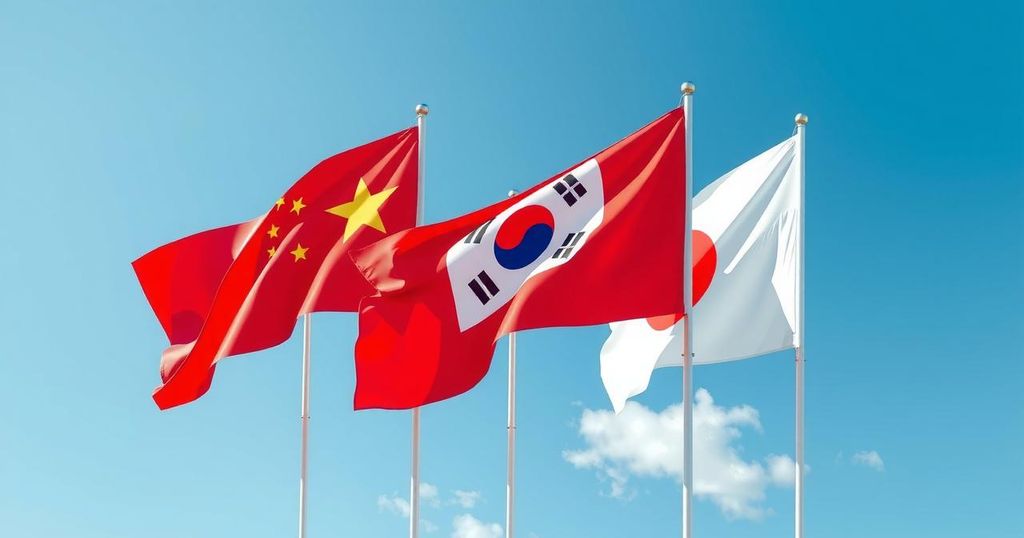Concerns Emerge Over Potential Travel Ban Affecting Muslim-Majority Nations
President Trump’s recent executive order has incited concerns among civil rights groups regarding the revival of a travel ban affecting Iran, Iraq, Syria, Libya, Sudan, Somalia, and Yemen. Advocacy organizations are launching support hotlines as they prepare for possible legal challenges, in light of the administration’s lack of clarity on the order’s implications. This situation renews discussions about discrimination and the balance between security and civil rights.
Civil rights organizations in the United States are expressing deep concerns regarding President Donald Trump’s recent executive order, anticipated to reinstate a travel ban affecting nations such as Iran, Iraq, Syria, Libya, Sudan, Somalia, and Yemen. Activists argue that this action risks reviving previous discriminatory policies which have disproportionately impacted Muslim and Arab-majority countries, further entrenching harmful stereotypes and undermining constitutional rights.
On January 20, President Trump signed an executive order that has alarmed various civil rights groups. They voice apprehension that this directive may pave the way for a new travel ban on individuals from Muslim-majority countries, which raises significant issues relating to discrimination on the basis of religion and ethnicity.
In light of escalating concerns, advocacy organizations have initiated a 24-hour hotline to provide assistance to those potentially impacted by the executive order. This hotline serves as a vital resource for travelers encountering challenges in the face of the order, offering essential support during this uncertain period.
Despite numerous inquiries from media outlets and civil rights advocates, the White House has failed to provide clarity regarding the details or possible implications of the executive order. This lack of transparency contributes to anxiety, leaving advocacy groups and the public seeking insight into its potential ramifications.
The American-Arab Anti-Discrimination Committee (ADC) is taking an active role in monitoring the executive order and is currently exploring legal options in response to the situation. ADC’s National Executive Director, Abed Ayoub, has indicated that a decision regarding a possible legal challenge will be forthcoming.
This executive order is reminiscent of earlier travel bans during President Trump’s tenure, which faced substantial protests, legal disputes, and global criticism. Civil rights advocates contend that such policies not only perpetuate negative stereotypes but also marginalize communities and infringe on constitutional rights.
Organizations advocating for civil rights are imploring the administration to reflect on the broader implications of its policies. They underscore the necessity of ensuring no specific group is unjustly targeted, while advocating for constitutional values such as equality and non-discrimination.
As the situation unfolds, civil rights representatives, affected communities, and legal professionals remain vigilant for new developments. The potential reinstatement of a travel ban enhances discussions surrounding the balance of national security and the protection of fundamental rights.
The article discusses the implications of President Trump’s executive order, signed on January 20, which has raised fears regarding a renewed travel ban on several Muslim-majority nations. Activism against such policies stems from past experiences where similar bans led to significant backlash, illustrating ongoing concerns about discrimination based on religion and ethnicity. The role of civil rights organizations, which mobilize support and provide assistance for those affected, is critical in navigating these challenging circumstances. Additionally, the potential legal responses highlight the tension between executive action and individual rights within the broader spectrum of national security.
The renewed fears surrounding a potential travel ban underscore the ongoing conflict between national security measures and individual rights. Civil rights organizations are prepared to advocate against discriminatory practices and promote constitutional values amidst rising tensions. The situation necessitates careful analysis by the administration to ensure equitable treatment of all communities, particularly those from Muslim-majority nations.
Original Source: www.travelandtourworld.com








Post Comment